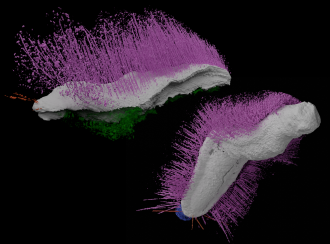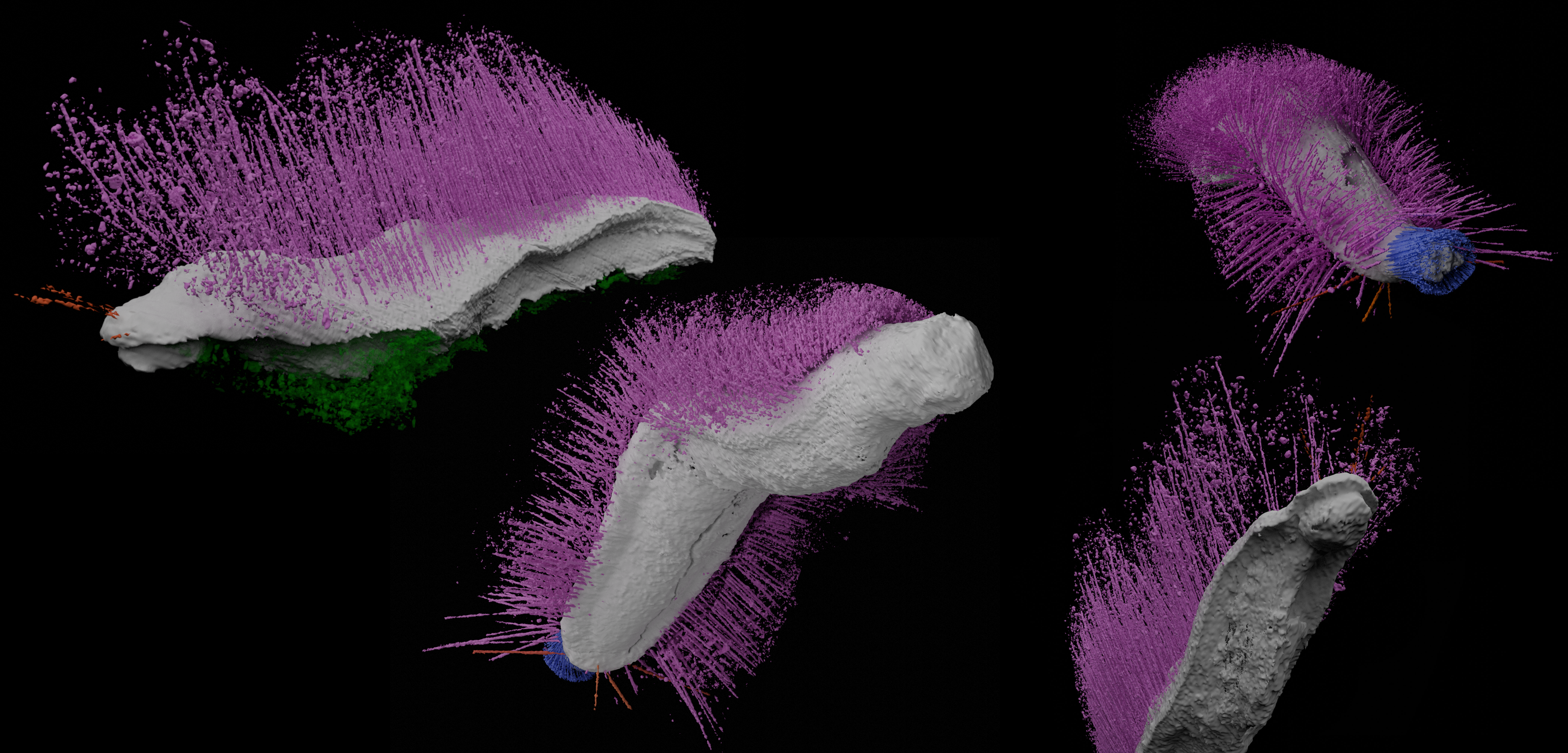Media release
From:
Palaeontology: Punk and Emo fossils rock our understanding of mollusc evolution *IMAGES*
Two newly described mollusc species, named Punk ferox and Emo vorticaudum, indicate that early molluscs were more diverse than previously thought. The spiky, wormlike fossils, presented in Nature this week, were found in the county of Herefordshire, England and date to around 430 million years ago.
Molluscs are the second most species-rich phylum in the animal kingdom, but details of their early evolution are not completely understood. The discovery of these two new mollusc fossils broadens the known diversity of this group of creatures.
The specimens were recovered from Silurian deposits in Herefordshire and are from a subgroup of molluscs known as Aculifera. They have distinctive spikes and other features that make them stand out from previously described early molluscs, Mark Sutton and colleagues report. One is named Punk because its spiky ‘hairstyle’ is reminiscent of that associated with the punk rock movement; the other is named Emo because it has spines that resemble long fringes and shells that are similar to the studded clothing associated with the emo musical genre, the authors propose. Characteristics from both fossils differ from previously described Aculifera.
The findings suggest that early aculiferan molluscs were a more diverse group than their modern-day counterparts, offering new insights into the evolutionary history of molluscs, the authors conclude.
Multimedia





 International
International



